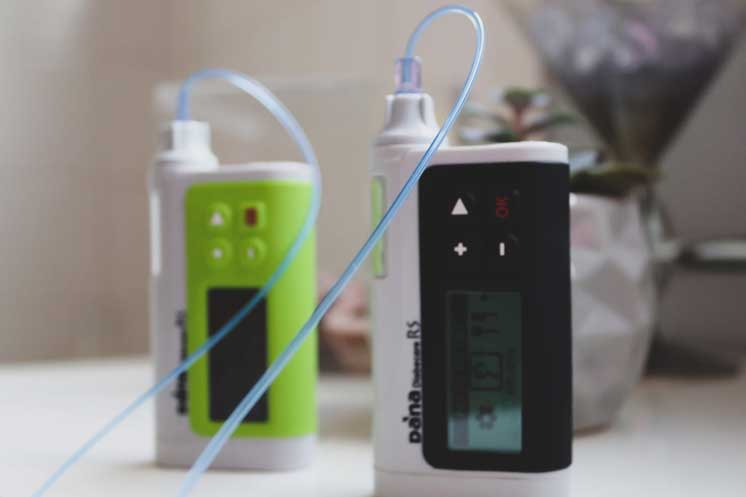On-demand: featuring presentation and speaker Q&A: Sponsored by Abbott diabetes care division this webinar is designed for HCPs who have an existing but limited knowledge of Flash Glucose Monitoring and would like to build their confidence and continue their education.
Please note, this event is designed for use by NHS Healthcare Professionals only. If you would like to access this webinar, please email bookings@sbk-healthcare.co.uk and we will send you the link to view.


About the Introduction to Data Interpretation for Flash Glucose Monitoring webinar:
Cement your learning and enhance your knowledge for interpreting Flash Glucose Monitoring data
Support and guidance for you in your own time
Packed with engaging examples that will help and inspire you, plus benefit from:

| 1 hour video | Filmed on Friday 7th October | featuring: | |
|
Intermediate data interpretation for Flash Glucose Monitoring
Dr Iain Cranston, Consultant Physician (Diabetes & Endocrinology), Portsmouth Hospitals NHS Trust Dr Anna Dover, Diabetes Consultant Physician, NHS Lothian
|
|
|
Questions and answers with the speakers
Professor Ramzi Ajjan, Professor of Metabolic Medicine, University of Leeds Dr Iain Cranston, Consultant Physician (Diabetes & Endocrinology), Portsmouth Hospitals NHS Trust Dr Anna Dover, Diabetes Consultant Physician, NHS Lothian
|
|

First-hand speaker experience
Associate Professor and Consultant in Diabetes and Endocrinology, University of Leeds
Regional CRN Lead for Metabolic and Endocrine Research, The Leeds Teaching Hospitals NHS Trust
RA Ajjan (MD, FRCP, MMed.Sci, PhD) obtained his PhD from the University of Sheffield and completed his clinical training in Diabetes and Endocrinology at Leeds Teaching Hospitals Trust. Dr Ajjan’s research work covers a spectrum of basic, translational and clinical studies with the common aim of reducing vascular complications in diabetes and reducing morbidity and mortality in this high-risk population. His research group described three novel mechanisms for hypofibrinolysis in diabetes, with both hypo and hyperglycaemia having key roles. Moreover, Dr Ajjan has shown a close relationship between hypoglycaemia and adverse clinical outcome in patients with diabetes.
Given the pathogenic effects of high and low blood glucose levels, he has been involved in a number of studies investigating the role of continuous glucose monitoring in optimising glycaemic control in diabetes. Dr Ajjan’s research work has been published in peer reviewed journals and he has over 100 publications including original papers, reviews and book chapters. His clinical practice concentrates on complicated type 2 diabetes patients with established cardiovascular disease as well as young adults with diabetes.
Dr Ajjan is the R&D lead for Diabetes/Endocrinology at Leeds Teaching Hospitals Trust and the regional clinical research network lead for endocrine and metabolic conditions. He is also the lead for first year medical student teaching in Endocrinology and Diabetes at Leeds University and co-lead of the Atherothrombosis and Diabetes group within Leeds Institute for Cardiovascular and Metabolic Medicine.
Dr. Iain Cranston is a diabetes physician based in Portsmouth, UK. He has specialty responsibility for the delivery of technology‐driven services (CSII / CGM etc.) to approximately 1% of the UK population. Alongside this, he is the lead diabetes clinician for the Wessex renal and transplant centre, managing individuals with specific and high glycaemic risks.
He has a background in clinical research, obtained during his time at Guy’s and King’s College and St Thomas’ Hospitals, into impaired awareness of hypoglycaemia in insulin‐treated diabetes and the cerebral and endocrine mechanisms underlying the syndrome. For the last 20 years, Dr Cranston has been in practice with the goal of translating the lessons learnt from research into routine clinical care consultations. This has resulted in a focus on effective glucose monitoring strategies to underpin clinical decision‐making and the development of data analytical processes to guide clinical consultations towards more effective therapeutic interventions in both type 1 and type 2 diabetes. He has published widely on this topic area (over 60 Peer‐reviewed publications) and has been an invited speaker at Diabetes UK, EASD and many National meetings around the world.
Dr Cranston has been a co‐director in a collaborative educational project with Professor Roger Mazze (International Diabetes Center [IDC] Minnesota), at the AGP Clinical Academy, which has the central goal of educating healthcare professionals in the effective clinical interpretation of the ambulatory glucose profile derived from continuous glucose monitoring technologies.